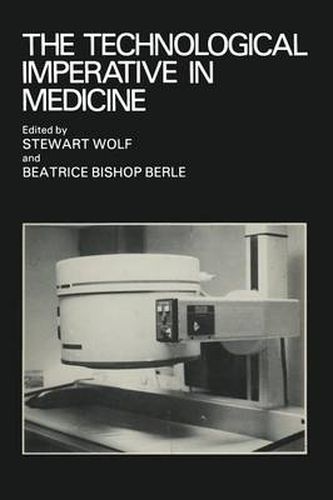Readings Newsletter
Become a Readings Member to make your shopping experience even easier.
Sign in or sign up for free!
You’re not far away from qualifying for FREE standard shipping within Australia
You’ve qualified for FREE standard shipping within Australia
The cart is loading…






This title is printed to order. This book may have been self-published. If so, we cannot guarantee the quality of the content. In the main most books will have gone through the editing process however some may not. We therefore suggest that you be aware of this before ordering this book. If in doubt check either the author or publisher’s details as we are unable to accept any returns unless they are faulty. Please contact us if you have any questions.
This volume contains the edited proceedings of a Totts Gap Colloquium held June 15 to 17, 1980 at Totts Gap Medical Research Laboratories in Bangor, Pennsylvania under the sponsorship of three neighboring community hospitals in the Lehigh Valley; St. Luke’s Hospital of Bethlehem, Easton Hospital of Easton and Muhlenberg Medical Center of Bethlehem. The objective of the meeting was to examine from several points of view the impact of rapidly proliferating technology on medical education, practice and research, on hospitals and on the community at large. The participants were selected not only for their diversity of experience and point of view, but also for ability to listen as well as to speak. They were asked to examine, in an informal analytical dialogue, the effects on the quality and cost of health care and health education brought about by increasing reliance on medical technology. A further aim was to explore various strategies through which might be devised an affordable way to benefit fully from technological advances without compromising human initiative or diminishing emphasis on clinical judgment and effective communication between doctor and patient. The participants included a medical student, seasoned practitioners and medical educators, young specialists, researchers, administrators and members of boards of trustees of community hospitals and laymen as follows: Dr. Robert Ackerman, Associate Professor of Radiology, Harvard Medical School and Director of the Carotid Evaluation and Cerebral Blood Flow Laboratories at Massachusetts General Hospital. Dr. Paul B.
$9.00 standard shipping within Australia
FREE standard shipping within Australia for orders over $100.00
Express & International shipping calculated at checkout
This title is printed to order. This book may have been self-published. If so, we cannot guarantee the quality of the content. In the main most books will have gone through the editing process however some may not. We therefore suggest that you be aware of this before ordering this book. If in doubt check either the author or publisher’s details as we are unable to accept any returns unless they are faulty. Please contact us if you have any questions.
This volume contains the edited proceedings of a Totts Gap Colloquium held June 15 to 17, 1980 at Totts Gap Medical Research Laboratories in Bangor, Pennsylvania under the sponsorship of three neighboring community hospitals in the Lehigh Valley; St. Luke’s Hospital of Bethlehem, Easton Hospital of Easton and Muhlenberg Medical Center of Bethlehem. The objective of the meeting was to examine from several points of view the impact of rapidly proliferating technology on medical education, practice and research, on hospitals and on the community at large. The participants were selected not only for their diversity of experience and point of view, but also for ability to listen as well as to speak. They were asked to examine, in an informal analytical dialogue, the effects on the quality and cost of health care and health education brought about by increasing reliance on medical technology. A further aim was to explore various strategies through which might be devised an affordable way to benefit fully from technological advances without compromising human initiative or diminishing emphasis on clinical judgment and effective communication between doctor and patient. The participants included a medical student, seasoned practitioners and medical educators, young specialists, researchers, administrators and members of boards of trustees of community hospitals and laymen as follows: Dr. Robert Ackerman, Associate Professor of Radiology, Harvard Medical School and Director of the Carotid Evaluation and Cerebral Blood Flow Laboratories at Massachusetts General Hospital. Dr. Paul B.